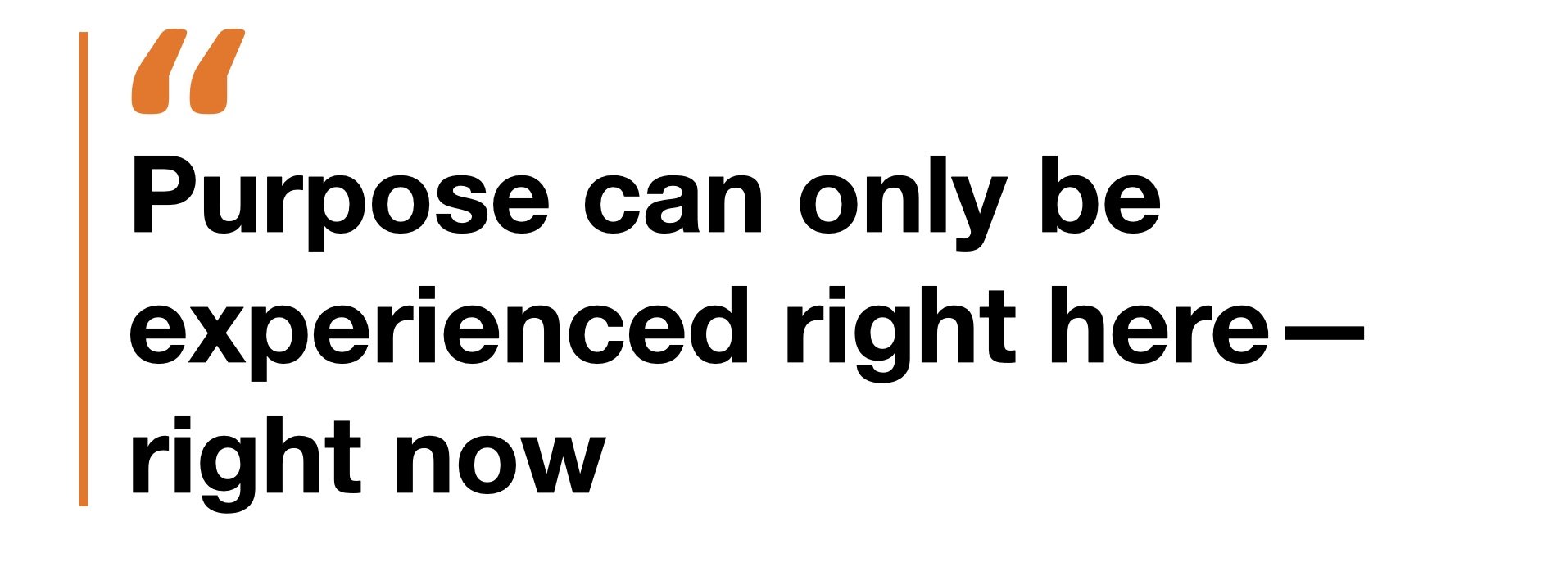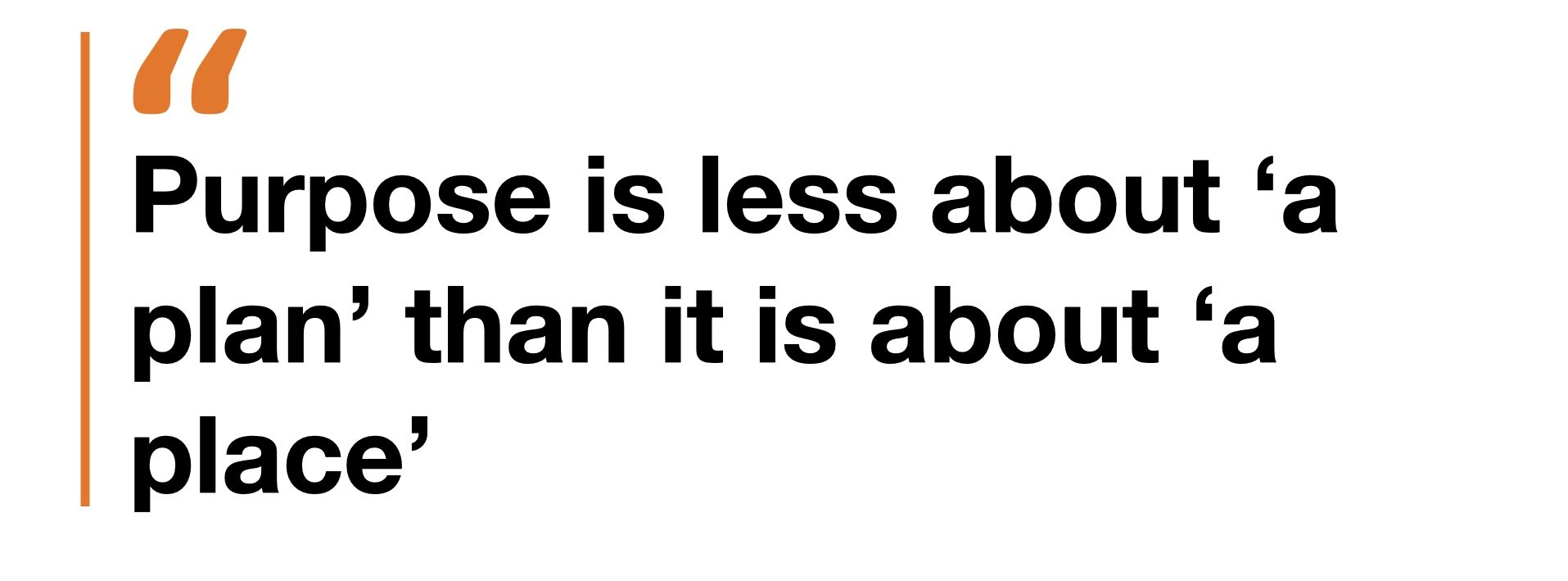Purpose
“To forget one's purpose is the commonest form of stupidity.” Friedrich Nietzsche
As the weight of his burdens pressed down, and his weariness increased while pondering the turn his life had taken, Frodo Baggins looked to his friend and advisor, Gandalf, and sighed with haggard honesty, “I wish this need not have happened in my time.”
“So do I,” replied the wizard with empathy, “and so do all who live to see such times. But that is not for them to decide. All we have to decide is what to do with the time that is given us.”
Many of us, however, can relate to the hobbit’s despair.
Perhaps we’re caught in a cyclone of unexpected circumstances, with things we thought were solid crumbling around us. Maybe we’re stuck in the mire of middle age—listless, visionless, verging on hopeless. We find ourselves wishing at first, fantasizing at last, that we were not where we are. Not now. We form an agreement internally that it would be better if we were somewhere other than here.
We believe “our purpose” lies waiting in another place, at another time…perhaps with another person. But, alas, our belief is wrong.
Purpose, it turns out, can only be experienced right here. Right now.
The first proof of this is in the essential nature of our person. We are embodied beings; as such, we can only be in one place, one moment at a time. This is no accident. If we accept that a creator designed with intentionality the living vehicles of his image, and placed them deliberately in a carbon-based, time-bound realm, then we must accept that where we are, in this moment, has its roots in a divine intent. A divine purpose.
The second proof is in the word itself. Purpose is generally defined as “an intention, an aim, a goal—the proper function for which something exists”. But digging deeper, we see something more about its meaning. Our English word is derived from the Old French porposer, meaning “to put forth”, and, more specifically, “to place”.
To have purpose, then, is to have been put in a place; indeed, the one place you could possibly be right now—the place where you are.
Purpose, we might say, is less about “a plan” than it is about “a place”.
And this is our struggle, because frequently in life, we don’t like the place where we are. It is not comfortable enough, not exciting enough, not rewarding enough, not pleasurable enough. It has too much uncertainty, too much memory, too much pressure…too little action. We are unsatisfied, perhaps even insolent, because there are so many other “places” we could be.
It’s in those moments, those seasons of life, that we want to know “why”, we want to understand some overarching “plan” that must exist to explain why everything, well, sucks.
And it’s in those moments we are most vulnerable to losing our sense of purpose, our sense of being placed, right here, right now. The corollary, however, is that it’s in those moments, in that place, that our true purpose, indeed our very raison d’etre, is unveiled.
Tellingly, we can observe in Holy Writ—let alone human history more broadly—countless examples of the protagonist being desperately pressed to cry out “Why God?” in the very moment and the very place where their mark on history was made. Whether being tossed into a pit, chained between pillars, hunted by kin, stripped of all possessions, thrown into dungeons, accused of treachery, betrayed by a spouse, stoned by countrymen, deserted by friends, condemned to jail…the natural response to such places is to shriek “why have you forsaken me?”
The supernatural response is to accept that One who placed us in such a valley of shadow is with us presently, sustaining us faithfully, and is forming us lovingly.
For just such a time—and place—as this.
“…for this purpose I have come to this hour.” John 12:27b



